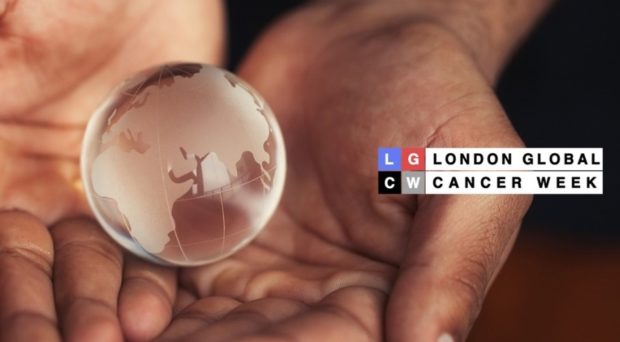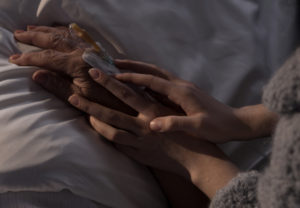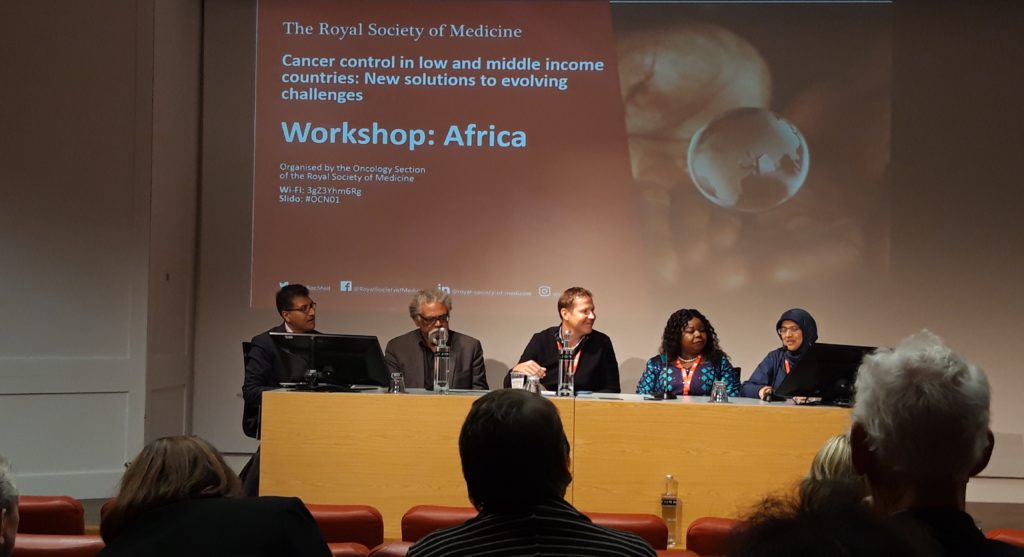
Increasing recognition for the importance of global cancer control in society is reflected by a growth in global meetings, initiatives and new policies. Dr. Susannah Stanway’s (Consultant Medical Oncology, Royal Marsden NHS Foundation Trust) enthusiastic opening speech was an especially warm welcome to us all at the Royal Society of Medicine on a rather grey Monday morning in November. Dr. Stanway has organised the meeting at the Royal Society of Medicine since 2016, continuously gathering stakeholders and experts in the field and establishing it as an essential meeting in the global oncology agenda. Her passionate engagement across successful global projects on top of her commitments in the clinic, made her the perfect candidate to officially launch the first London Global Cancer Week which ran from 25th-29th November 2019.
The promise of universal coverage for global cancer care
The choice of invited speakers was excellent with plenary talks and workshops thought-provoking and motivating, although unfortunately, not all talks can be covered here. Prof. David Collingride (Editor-in-Chief, Lancet Oncology) has led numerous editorial commissions that focus on cancer control in low and middle income countries (LMICs) over the years. Together with Dr. Diana Sarfati, he was an excellent co-chair for the first panel.
How can we prevent the migration of trained cancer surgeons to higher income settings?
First up on stage, Prof. Richard Sullivan (Cancer and Global Health, King’s College London and Guy’s and St Thomas’ NHS Foundation Trust) evaluated how countries have so far committed to delivering Universal Health Coverage (UHC) to their respective populations. A promise that is not easy to keep in terms of population covered, interventions covered and financial protection, especially in LMICs. In settings of ongoing armed conflicts, forces of nature or macroeconomic fragility, we often find health is not a top political priority. Corruption and large population migration add further difficulties into the mix. Yet, cancer and its treatment remains the most challenging for any system to address within UHC. How can it be done? Who is in charge when people cross borders to get access to health care in reality? How can the migration of trained cancer surgeons to higher income settings be prevented in the future? Prof. Sullivan raised several fundamental questions that need to be addressed moving forward and that were discussed at length during our coffee break.
The global challenges of substandard and falsified medicine

Chloe Tuck (International Project Lead, Commonwealth Pharmacists Association) and Oksana Pyzik (University of London, UCL, School of Pharmacy) shed light on the challenges of availability, acceptability and affordability of cancer treatment in LMICs and introduced their successful work on Fight the Fakes – Speak up to Falsified Medicine. Whilst having heard previously about fake medical products, I was not aware of the extent of the problem and the resulting damage done worldwide. Most attendees were shocked when the data was presented and we learnt that in some cases old bottles are simply emptied and filled either with the wrong medicine or non-active substances. Leading to bankrupted and dying cancer patients and a massive decrease in trust and confidence in the local health systems and regulations – not just in LMICs but across the Western world as well. Chloe and Oksana pointed us to the latest version of The Oxford statement and Call for Action (Lancet Oncology, Dec 2019) and made it clear; education and raising awareness worldwide are key in fighting the growing threat to human health. Initiatives such as the #MedsWeCanTrust campaign launched in 2018 have already connected over 300 partners in more than 45 countries around the globe to discuss, to inform and to consult. Additionally, we will need a robust legal frame work and secure medical product trace technology to validate the drug and its origin.
Opportunities provided by digital health in low and middle income countries
Digital innovations can be crucial and provide a major opportunity in cancer control across LMICs. Prof. Shafti Ahmed (Consultant surgeon, Barts Health NHS Trust and The Royal London Hospital) gave us a sneak peek into the future of hospitals and introduced us to the first virtual reality (VR) interactive surgical training modules launched by Medical Realities in 2017. This tool allows medical trainers to deliver an immersive learning experience, offering medical students, doctors and surgeons around the world the ability to see interactive VR un-obscured views of operations and to learn directly from specialists. It is further used for live consulting with experts globally while operating on a patient in the theater.

It was fascinating to watch Prof. Shafti’s video examples. Other tools using artificial intelligence for cervical cancer screening and projects on the usage of low-cost, virtual, augmented and mixed reality to overcome critical gaps in cancer control in LIMCs and beyond are on its way. We will definitely hear more about these in the future.

With a bright AI future in mind the talk that followed could not have been more contrasting. Dr. Carlo Caduff (Reader in Global Health and Social Medicine, King’s College London) reminded us of fundamental struggles in cancer screening in LMICs and that an understanding of anthropology, local socioeconomic and traditional settings are crucial when it comes to cancer control worldwide. We need to build the evidence base of what people already know and are aware of in order to encourage them or family members to even see doctors, go to hospitals and undergo initial cancer screening. It can be a challenging task that goes beyond the simple survey question of “Do you know the name cancer” where existing religious or traditional beliefs or local dialects can add difficulties into the mix. Identifying those who have influence in a local community is fundamental to progression and utilizing these individuals has been instrumental in overcoming these obstacles in order to successfully run cancer awareness campaigns across rural areas.
‘The future is here. It is just not equally distributed yet.’ William Gibson
The vital importance of engaging with decision makers
Prof. Diana Sarfati (Head of Department of Public Health, University of Otago, Canada) opened the conversations and topic on a political level. We need to identify feasible global cancer control solutions and to identify those in power to act. We need to know what motivates key stakeholders and communicate well in order to drive change and cancer control globally. Her selected best practice examples showed local solutions need to be found for local projects. Prof. Sarfati’s large body of research further revealed ethnic disparities in cancer outcomes, particularly those affecting indigenous people and has identified key patient and health system factors that influence cancer survival. It has been extensively used by health policy makers, clinicians and other researchers to develop policies and practices that have reduced inequities in cancer outcomes. Diana is currently a member of the National Cancer Leadership Board in New Zealand, the Advisory Committee to International Agency for Research on Cancer’s (IARC) Pacific cancer hub, IARC’s international expert group on social inequalities in cancer and the Academic Advisory Committee on the International Cancer Benchmarking Project.
Global cancer initiatives and collaborations
‘There is no time to lose – we need an urgent call for meaningful action!’ Princess Dina Mired of Jordan
The meeting was graced by HRH Princess Dina Mired of Jordan entering the stage as the president of the Union for International Cancer Control (UICC). She is a well-known passionate global advocate for cancer control and non-communicable diseases and a mother of a cancer survivor. It has been fascinating to hear her on the lectern. Her engaging talk on the need for a new paradigm shift on building sustainable partnerships and solutions to tackle cancer control has sent a very strong message and has none of us left in doubt: There is no time to lose – we need an urgent call for meaningful action!
Later in the day, I was given the opportunity to attend a workshop session entitled ‘Africa’. The workshop and discussion forum highlighted examples of successful ongoing collaborations between African institutions and institutions in the UK or the US, including any challenges they are facing.

We heard about cancer program cooperation between the University of North Carolina and the University of Zambia and the collaboration of the Uganda Cancer Institute with the Fred Hutchison Cancer Alliance which has resulted in jointly run clinical cancer trials. Beatrice Waife presented interesting insights into her Breast cancer control strategy in Ghana; the Breast Care International Approach. Again, major challenges remain here too, e.g. to keep well-trained oncology surgeons who often leave due to lack of infrastructure and schools for their children. Patients are often presenting at late tumor stage (e.g. stage III-VI) and hospitals do not have enough beds and chemotherapy drugs and the majority of care and treatment takes part in homes.
‘Patients often present at late tumor stage and the majority of treatment takes part in homes’
The whole day was very inspiring and motivating. We explored the important role of primary care in global oncology with Prof. Ophira Ginsburg (the Director of Perlmutter Cancer High Risk Program, University of New York and a Medical Officer for Cancer Control at WHO). We learned first-hand from Dr. Shailesh V. Shrikhande about his experiences, the challenges and opportunities when setting up cancer centers in India. We were introduced to development of crucial resource-stratified oncology guidelines by Prof Ben Anderson (University of Washington) and learned about a successfully run Breast Cancer Survivorship programme in Tanzania by Dr. Nazima Dharsee, a Consultant Clinical Oncologist, Ocean Road Cancer Institute who also took the Vanessa Moss Prize vicarious for the winner Dr. Nono Ahuka. Overall, global cancer control is an absolutely overwhelming challenge but nevertheless not impossible. Let us stick together to control and fight cancer united and globally!
Upcoming: World Cancer Congress in Muscat, Oman from 20-22nd October
Comments